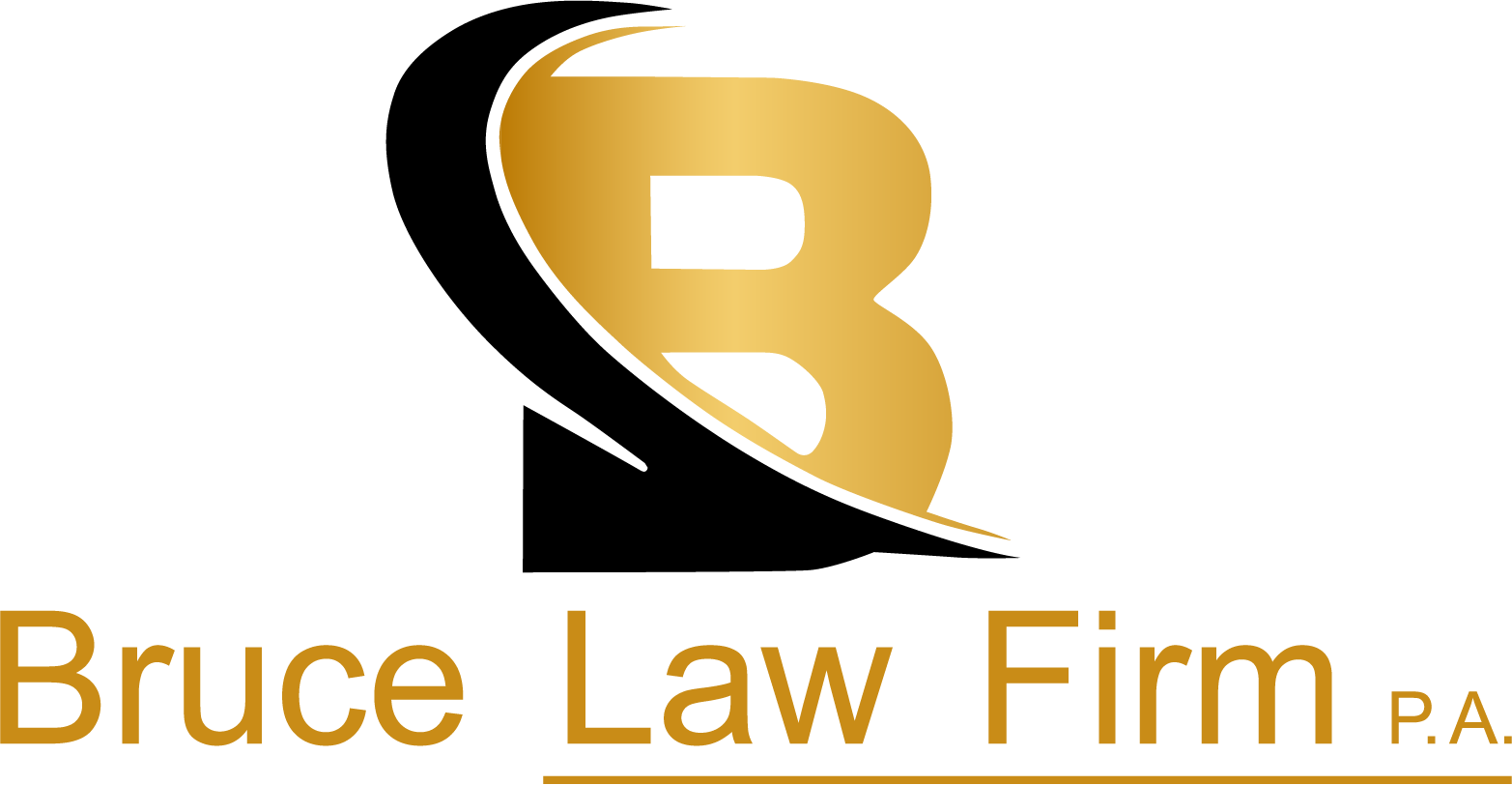Below is the transcription of this interview with therapist Cheryl Buss. For more information about Cheryl Buss please click here. To contact her directly please call 941-222-0523.
Transcript from Interview
Christopher Bru…: Hi, everyone. My name’s Christopher Bruce. I’m a divorce lawyer in South Florida area and today I have the pleasure of being on with Cheryl Buss. Cheryl is a licensed clinical social worker and she’s based in the Sarasota area, but she’s licensed in Florida and sees clients statewide which is how I came to know her. She works or has worked with a few of the clients that we’ve represented in some really just high conflict relationships. Usually those that involve divorce from a narcissistic type individual usually with kids involved. And I’m just really thrilled that she’s taking the time out of her day to come here and talk a little bit about some of the things that all parents and spouses or anybody really should know when leaving a relationship with somebody who has these narcissistic character traits, especially when there’s kids involved.
So we’ve got some really cool stuff to talk about. We spent some time before this going over the subject matter. I think is going to be really helpful. And I think it’s the point in time where I should stop talking. And Cheryl, if you don’t mind, maybe just introduce yourself and just to help people understand how you came into doing what you do in your practice.
Cheryl Buss: Sure. Thank you for having me, Chris. Hello to everybody. I’m Cheryl. I specialize in treating survivors of narcissistic abuse. The reason that I chose this specialization is because when I finally recognized that I had endured several narcissists during my lifetime such as family members, ex-husband, boyfriends, co-workers, I started doing some research, reading books, watching YouTube videos, all different kinds of things. And I fell into this horrible funk, depressed, anxiety, despair, and realized that I needed to find a therapist to help me sort out all the tangled thoughts in my head and my emotional turmoil.
What I found was that it is extremely difficult to find a therapist that truly understands what this type of psychological abuse looks like, the damage it does and how to help someone heal from it. If you have never experienced this kind of abuse, it’s very difficult to explain to other people because they don’t believe it’s true or it sounds crazy. So because of my life experiences I have an intimate understanding of experiencing narcissistic abuse and the process of healing from it. That’s why I do what I do.
Christopher Bru…: Well, it’s to me you have what I’d love to say I have, but I don’t. That’s the experience of going through these relationships that you help people successfully and sometimes move on from. And I have to think that really helps a lot with what you do in your practice for your clients.
Cheryl Buss: Yes, absolutely.
Christopher Bru…: As it relates to the client work that you do do with people in these difficult relationships. I mean, what are some of the primary issues you see with people who were going through a divorce or a breakup of a relationship, and the other person, parent is a narcissist? How does that complicate things? Maybe people hearing about that they might be able to resonate with their own life for some people they’re trying to help.
Cheryl Buss: Okay. Yes. Basically the narcissist is going to do everything they can … They’re going to go after everything. Whatever is most important to the other party and/or what they’re really good at. And if there’s children involved, it’s usually the healthy parent that is a great parent. They will go after the mom or the dad, whichever is the healthy parent and try to keep the children from them. They will lie about everything. They’re very masterful and convincing liars. They will create the narrative that the healthy parent is unfit in any of numerous ways. They’ll frequently use the children to spy on the other parent or tell them why is about the other parent in an attempt to alienate them from their healthy parent. And basically their only goal is to win and have ultimate control.
Christopher Bru…: Cheryl, we were talking a little bit before we started the recording that just the situation people go through when they’re ending a relationship with somebody who’s a narcissist or similar type personality. Some of the stuff that happens, most people just wouldn’t even believe it actually happens in this day and age in the MeToo era. And maybe for those people or for the people that might be going through this and just think there’s something wrong with them, help us understand how does going through one of these relationship breakups with children in a narcissist affect the healthy person, the healthy parent.
Cheryl Buss: Sure. My clients have already suffered considerable abuse living with a narcissist, which means they are often very confused about their own reality. They wonder if they’re crazy, they complain of memory problems. They’re hypervigilant resulting in severe anxiety and they’re often terrified at what the narcissist will do next. So they feel like they’re always walking on eggshells.
Christopher Bru…: So for the people that are experiencing that type of situation, what’s the best advice to those people at how to minimize the way they’re feeling and how it affects them?
Cheryl Buss: Yes, I work with my clients to understand the tactics that narcissists use to inflict the fear and confusion that has made them question everything they think, do and say, basically leaving them in utter despair. I help them understand that everything they are being accused of is really what the narcissist is doing. This is called projection. The narcissist projects their actions and behaviors onto them and then blames them for their horrible behavior.
I also help them understand the techniques narcissists use such as gaslighting, love bombing, using flying monkeys, attacking their character, their looks, their intelligence, their parenting skills, and the list goes on. I also help them understand how the narcissist communicates through text and emails, and teach them how to basically decode what they are really saying. Essentially how to minimize engagement by keeping communication limited free of emotion and just using the facts.
Using techniques such as gray rock. Canned responses are always with a courteous or business-like email or text. I also encourage them to use a separate email address or a court approved app to communicate such as OurFamilyWizard. The reason for that is that you need to document everything that is going on. And if you have a separate email, it’s easier for you to print out that information. The court approved app is something that the courts can see so it’s good documentation for court. I also encourage them not to agree to any FaceTime or videos because these avenues of communication leave them open to further abuse.
Christopher Bru…: Well, that’s interesting stuff and maybe we’ll have a bonus round at the end. I know what some of these terms mean, but it’s kind of interesting when you hear them; gaslighting, love bombing, flying monkeys. I remember the first time I heard that I had to play along and look it up, but. Maybe we will have a bonus round at the end. But speaking of the end, I mean, just to give the people out there some hope with this stuff because you and I both have seen the transformation in people.
How does some of the work that you do and some of the methods that anybody listening to this can implement with their communication? How does that help them? How does it change their life and how they feel and impact their healing?
Cheryl Buss: Basically, it really helps initially to decrease their anxiety. They begin the deprogramming phase, so to speak. After that happens, their confidence slowly builds back up and that’s really when the healing process begins.
Christopher Bru…: So I guess one of the things we’re going to talk about is narc speak. And for some people are hearing this for the first time, they’re probably saying, “What the heck is that and what’s going on here?” But it’s interesting the patterns with how narcissists and similar types communicate and do similar things and it’s confusing. I think we were saying before, it’s like a bunch of gibberish sometimes or garbage. But we’ll get into that a little more maybe. So what is narc speak?
Cheryl Buss: Basically, narc speak is this convoluted way that narcissists communicate. And it seems to be common to all of them. They tend to use long rambling sentences. And I mean, really long. Big words that are meaningless in the context of their message. The message contains projections, threats, false accusations, anything that will cause you pain, fear, anxiety, or despair. And if you respond to those, they will send another similar message, but it will be more raging and ranting. In other words, longer, but simply using the same words over and over again resembling word salad.
Christopher Bru…: And I think from what I understand, your suggestion a lot of times is to respond in a very business-like manner and to keep it short and to keep from just in engaging with them in the same way to hopefully minimize the affect that this word salad gibberish is what I call it I guess affects the person.
Cheryl Buss: Yes, absolutely. Absolutely. There’s a great book by Tina Swithin called The Narc Decoder: Understanding the Language of the Narcissist. And in it, she suggests that this imaginary narc decoder will successfully scrub down the projection, lies, attacks and ulterior motives that are typically found in a narcissist email or text. And she also recommends that in the beginning stages of the decoding and learning how to do it if it’s too difficult to do due to post-traumatic stress or triggers you in some way, that you shared your message with a trusted friend and let them decode the message for you.
And I thought that was such a great idea that it became one of my free services to my clients. So I tell them that they can send me their texts or emails from their narcissist and I will decode it for them. And what this does is it speeds up the learning curve for my clients learning how to do this on their own, which lowers their anxiety about how to respond or not respond, and therefore speeds up the process of healing. So once they figure out how to code narc speak, it becomes rather entertaining which actually makes it fun for me to help them learn this skill. And all of my clients who have taken me up on this have later told me that it was the best thing I ever could have done for them to start the process.
Christopher Bru…: When we were talking about that, I mean, it just seemed to be so helpful and for the people that are having to go through the legal process if they’re getting divorced through this. I mean, I’ll tell you what I mean. Being able to work with a really good therapist or coach like what you do on this as compared to calling the lawyer each time is I think it’s not only probably a better way to learn the skill of how to respond, but also probably a pretty economical way to do it too and a lot quicker.
I mean, most of the lawyers, it’s hard to get them to pay attention for a couple of days and you can get this type of help through you pretty quickly. And I think that’s an amazing, amazing service that you offer to your clients. So that’s pretty neat. And I guess this wasn’t in the script, but can you tell me what a flying monkey is and how somebody gaslights just for the heck of it?
Cheryl Buss: Sure. So gaslighting is when they will move something and you can’t find it and you know you left it in a certain place and then you find it someplace else and they’re like, “Well, you didn’t put it there.” Or they’ll tell you something and a day or two later, you say, “Well, you said to do this.” And they’ll say, “I never said that.” Or they’ll do something to you, maybe something negative and you’ll say, “Well, we got in that fight the other day and you slapped me upside the head.” And they’ll say, “I never did that.”
And so they hear that so much that they get to the point where they start questioning their own memory and they start questioning, “Did that really happen? Is that what he said?” They’re very subtle in how they do this. It starts a little bit at a time, and then it gets more and more to the point where you just don’t even know what your own reality is. Oh, flying monkeys.
Christopher Bru…: Oh yeah. We can’t miss that.
Cheryl Buss: We can’t miss that. Okay. So flying monkeys, if a narcissist is losing control of you they will start using other people as they’re flying monkeys. And what they do is they will go to, it might be your friends that you used to hang out with as together as a couple. And they will be telling your friends just how horrible you are, how crazy you are, all these crazy things that you’re doing, all the things that they’re basically gaslighting you on. They will tell the friends who often believe it because the narcissist sometimes looks like they’re this really, really great person, but you don’t know what they’re like behind closed doors. So then those flying monkeys are out spreading that you’re crazy all around. That’s flying monkeys. They will use them against you.
Christopher Bru…: And it’s I guess another reason to gray rock the person and keep gray rocking, which I guess I understand is to try to not engage in those interactions. For a lot of our clients, they eventually will minimize and hopefully stop to some degree. But one thing it’s fascinating to think about for me and a lot of our clients want to know when they’re in a framework of they’re unhappy, but they’re so predisposed to trying to help other people. They have their beautiful children in front of them and they’re just givers in life.
They want to fix the situation and they have a lot of high hopes for maybe taking what’s had glimmers of being a relationship they want to stay in at times and making it a better one. And what’s your thoughts and opinion on? I mean, can somebody with a narcissistic type traits change? Is it possible? What do you think? There’s some interesting opinions out there on that.
Cheryl Buss: Yes, there are lots of interesting opinions on that. In my opinion, I believe that most people have some narcissistic traits because there are some things that are healthy to a certain degree. So those traits lie on a continuum. Like for example, if you grew up with a narcissistic parent, you may have some narcissistic traits because you were molded that way and that was your normal basically. But you may also be empathetic.
And in my opinion, if you have empathy then you are capable of recognizing your narcissistic traits and can work on minimizing or eliminating them and have a happy relationship. However, for a full blown narcissist that has no empathy, they are incapable of caring for anyone but themselves and they do not believe there is anything wrong with them. So why would they change anything? That’s basically my feeling on that.
Christopher Bru…: I’d probably pretty much agree with you on that. When they are truly on the far end of, I guess you might call it, the spectrum or continuum as you say. It’s usually pretty hard to get the person to change. And I mean, we discuss with our clients, you just have to make a decision. I mean, are you going to find a way to deal with that relationship and see it for it is and not be upset by certain things? Or are you going to make the decision to move on from it?
And we tell people, “Look, I mean, we may have our individual thoughts, but it’s not necessarily a wrong choice. You just have to understand that the situation with some of these more far on the continuum people, it’s not going to change. So either deal with it or move on from it.” Sadly, you’re not going to fix it most of the time but-
Cheryl Buss: Most of the time. Chris, can I interject something else?
Christopher Bru…: Sure. Yes, definitely.
Cheryl Buss: Okay. The other thing that I’m starting to find because the narcissists use projection, all right? So they are projecting what they’re doing and saying that you’re doing that, that’s wrong and you’re horrible for it. What I’m starting to hear is that the narcissist is accusing the other person now being a narcissist because the term narcissist and narcissistic abuse has gotten out there and there’s much more information. So it’s like if I work with a couple now and they’re both claiming the other one is a narcissist, I’m like, “I see you both separately before I see you together to figure out what’s really up here.” So I find that interesting.
Christopher Bru…: That is interesting. And at times I’ve wondered if the same species is married to each other, but I guess I should probably stop on that one before I go any further. So I was saying at the beginning, my firm, my wife and I especially came to know you through just some of the clients that you’d been working with that we also began to work with as well. So we know what you do, but maybe just help everybody who’s listening to this understand what you actually do professionally and in your practice and where you are, who you help, how you can see people. So that if it sounds like it might be a helpful match that they know what you do.
Cheryl Buss: Sure. As Chris said earlier, I’m a licensed clinical social worker in the state of Florida. I work with Tampa Bay Psychiatric Services and we have offices in Sarasota and Wesley Chapel. And we also provide telehealth. Psychiatric services are provided by Dr. Gluszak who’s a board certified psychiatrist for children, adolescents, and adults. And I provide mental health therapy services exclusively via telehealth. So I can see anyone in the state of Florida.
I see adults only and offer individual couples and family therapy. I specialize in narcissistic abuse recovery, which often results in a diagnosis of complex posttraumatic stress disorder and working with professionals suffering from anxiety, burnout, depression, and stress. And it’s important to remember that toxic people are everywhere. They are often very charismatic and successful in the workplace, churches, schools. So a lot of times people in those kinds of situations, those professionals working with another professional that is narcissistic, I can help them with some of those same symptoms of anxiety and depression and stress.
Christopher Bru…: That’s I think a thing a lot of people miss out on getting help for. They just don’t understand that when they’re in a professional situation or a social situation, it doesn’t have to be a relationship. A lot of the same dynamics that come from these abusive relationships are at play because they’re in a relationship with their boss, with a co-worker, with somebody in their congregation too. It’s all relationships in this stuff that you’re talking about applies all around.
And I mean, for me, it’s knowing what I know now I think people really need to take advantage of the types of things that you and some of your colleagues in your field can offer. Looking back, I probably should have done it a couple of times. I think it would have dramatically improved my work performance as just a professional. And I think that’s sometimes an area people don’t think to really seek out help on. It doesn’t mean there’s anything wrong with you. It’s just really improving performance. I’m glad you mentioned that.
And I guess in terms of tracking you down, we’ll have your website posted here as we’re talking and link to the places this will appear, but maybe help people understand the best way to get in touch. And how does the kind of the onboarding process work with you or the first step people should take. And that way we can leave people with a way to get in touch in know what they need to do.
Cheryl Buss: Sure. My website is www.cherylbusslcsw.com. You can learn more about me there and my contact information is there as well, my email address and my phone number. I also offer a free 15-minute phone consult that can be booked from my website.
Christopher Bru…: Thank you so much, Cheryl, for taking the time to go through this today. Just as a reminder, we’ve been here with Cheryl Buss. She’s a therapist in the Sarasota area. She practices statewide in Florida and her specialty is narcissistic abuse and the recovery from it. My name’s Christopher Bruce and I can certainly vouch for Cheryl and the way that she helps her clients. I encourage you to reach out to her if any of this is resonating with you. Cheryl, thank you again for being part of all of this.
Cheryl Buss: Thank you so much for having me, Chris.
- Review this with one of our attorenys- Schedule a Conversation
- Call today to schedule a time to talk to an attorney (561-286-8275)



